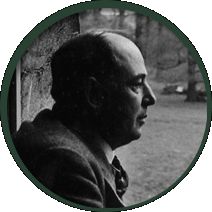 C. S. Lewis was an atheist in his younger days, but eventually had to abandon his materialism and come face-to-face with the reality of the spiritual. Ten years after his conversion, in an essay called “Religion: Reality or Substitute,” he explained why the spiritual world is not just a figment of men’s imagination:
C. S. Lewis was an atheist in his younger days, but eventually had to abandon his materialism and come face-to-face with the reality of the spiritual. Ten years after his conversion, in an essay called “Religion: Reality or Substitute,” he explained why the spiritual world is not just a figment of men’s imagination:
Authority, reason, experience; on these three, mixed in varying proportions, all our knowledge depends.
The authority of many wise men in many different times and places forbids me to regard the spiritual world as an illusion.
My reason, showing me the apparently insoluble difficulties of materialism and proving that the hypothesis of a spiritual world covers far more of the facts with far fewer assumptions, forbids me again.
My experience even of such feeble attempts as I have made to live the spiritual life does not lead to the results which the pursuit of an illusion ordinarily leads to, and therefore forbids me yet again.
I am not now saying that no one’s reason and no one’s experience produce different results. I am only trying to put the whole problem the right way round, to make it clear that the value given to the testimony of any feeling must depend on our whole philosophy, not our whole philosophy on a feeling.
Feelings, by themselves, are never an accurate guide into truth. That’s why Lewis is saying we need the greater perspective; we need to see the big picture. And that big picture tells us the spiritual world is all too real. If that’s the case, we need to take it seriously.
